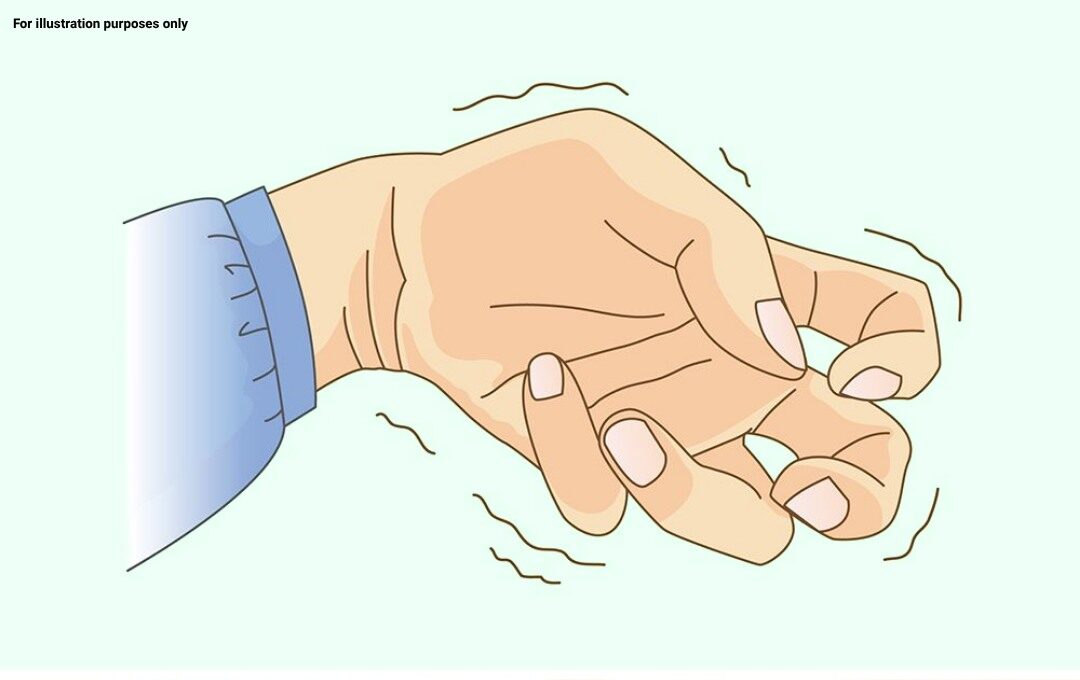We’ve all been there: a presentation that leaves your palms sweaty and your hands trembling, or perhaps that extra-strong coffee sending a jolt through your system, manifesting as a slight tremor. It’s easy to dismiss these fleeting shakes as mere “nerves” or a caffeine buzz. But what if those tremors linger, or appear without an obvious trigger? What if your body is trying to tell you something more profound?
The truth is, those subtle vibrations in your hands could be a whisper from your body, hinting at a range of underlying conditions far beyond simple stress. From common, manageable disorders to more serious neurological challenges, understanding the potential culprits behind shaky hands is crucial for your peace of mind and overall health.
The Unseen Language of Tremors: Beyond the Obvious
Hand tremors are involuntary, rhythmic muscle contractions – your body moving without your conscious command. While stress and anxiety can certainly induce temporary tremors, known as “enhanced physiological tremor,” the world of tremors is far more complex. They can be broadly classified: “resting tremors” that appear when your muscles are at rest (often a red flag for certain conditions), and “action tremors” that emerge during voluntary movements, like reaching for a glass. The subtle differences in how and when your hands shake can offer vital clues to medical professionals.

Essential Tremor: A Silent Companion for Millions
One of the most widespread movement disorders is Essential Tremor (ET), affecting a significant portion of the population. Unlike the tremors associated with Parkinson’s disease, ET primarily affects the hands and arms during activity – think writing a letter or holding a spoon. It’s often hereditary, a quiet legacy passed down through generations, and can manifest at any age, though it typically becomes more noticeable in older adulthood. While not life-threatening, ET can profoundly impact daily life, making simple tasks a frustrating challenge. Thankfully, treatment options, from medications to targeted therapies, exist to help manage its effects.
Parkinson’s Disease: Unveiling Early Whispers
When tremors occur at rest, particularly starting in one hand and possibly spreading, it raises a significant concern for Parkinson’s Disease. This progressive neurological disorder is characterized by more than just shaking; it can lead to a slowing of movement, muscle rigidity, and balance issues. Early diagnosis is paramount, as timely interventions can significantly improve quality of life and help manage symptoms. The resting tremor of Parkinson’s is distinct from ET and is a crucial early indicator for medical evaluation.

Hyperthyroidism: An Overactive Internal Engine
Your thyroid gland, a small butterfly-shaped organ in your neck, plays a mighty role in regulating your metabolism. When it goes into overdrive, a condition called Hyperthyroidism, it can send your body into a state of heightened activity, including fine, rapid hand tremors. These tremors are often accompanied by other tell-tale signs like unexplained weight loss, a racing heart, anxiety, and an unusual intolerance to heat. If you’re experiencing these symptoms alongside shaky hands, a simple blood test can reveal the answer.
The Hidden Impact: Medications, Lifestyle, and Nutrition
The causes of tremors aren’t always rooted in complex neurological conditions. Sometimes, the explanation is closer than you think:
- Medication Side Effects: Certain prescriptions, from antidepressants and antipsychotics to asthma medications, can unexpectedly cause hand tremors. If you’ve recently started a new medication and noticed your hands shaking, consult your doctor.
- Caffeine and Alcohol: Your morning coffee ritual or a nightcap could be contributing to the problem. Excessive caffeine is a known stimulant that can induce temporary tremors, while chronic alcohol use can lead to tremors during withdrawal. Moderation is key.
- Anxiety and Stress: While not always the primary cause, acute anxiety and chronic stress can trigger your body’s “fight or flight” response, releasing adrenaline and leading to noticeable tremors. Learning stress management techniques can often alleviate these symptoms.
- Nutritional Deficiencies: Sometimes, your body is simply lacking essential building blocks. Deficiencies in vital nutrients like Vitamin B12 and magnesium, crucial for nerve and muscle function, can manifest as tremors.

When to Seek Medical Guidance: Don’t Hesitate
While occasional, mild tremors might be nothing to worry about, it’s crucial to listen to your body. If your hand tremors are:
Persistent or worsening over time.
Accompanied by other new symptoms like difficulty walking, speech changes, muscle weakness, or a sudden change in handwriting.
Impacting your daily activities or quality of life.
Don’t hesitate to consult a healthcare professional. A thorough examination and targeted tests can uncover the underlying cause and guide you toward the most appropriate and effective treatment. Remember, your health is a precious gift – and understanding the subtle messages your body sends is the first step towards protecting it.


